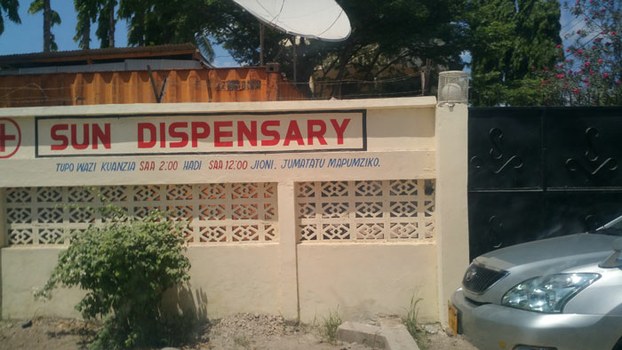Tanzania shutters two North Korean medical clinics
| Publisher | Radio Free Asia |
| Publication Date | 19 April 2016 |
| Cite as | Radio Free Asia, Tanzania shutters two North Korean medical clinics, 19 April 2016, available at: https://www.refworld.org/docid/5760fb7225.html [accessed 21 May 2023] |
| Disclaimer | This is not a UNHCR publication. UNHCR is not responsible for, nor does it necessarily endorse, its content. Any views expressed are solely those of the author or publisher and do not necessarily reflect those of UNHCR, the United Nations or its Member States. |
2016-04-19
 The Ubungo Clinic is one of the North Korean hospitals operating in Tanzania. RFA
The Ubungo Clinic is one of the North Korean hospitals operating in Tanzania. RFA
The Tanzanian government has ordered the immediate closure of two North Korean medical clinics operating in the major port city of Dar es Salaam because the facilities used fake medicine, unqualified doctors and ineffective treatments that could actually harm patients.
Hamisi Kigwangalla, Tanzania's deputy minister of health, ordered the immediate closure of the two North Korean clinics located in the city's Kariakoo and Magomeni wards, after a personal visit to check the clinics' medical operating conditions on April 15.
April 15 also marked the end of a grace period the Tanzanian government issued in January to give the clinics time to correct the problems, many of which were highlighted in a set of investigative reports by RFA's Korean Service earlier this year.
The medical facilities had no business licenses but were accepting patients, while most of the North Korean doctors at the clinic had no work permits, The Guardian, Tanzania's leading newspaper, reported on April 17th.
North Korean personnel initially tried to preempt Kigwangalla's visit, arguing that their business was a joint operation with Tanzania's governing party, Chama Cha Mapinduzi (CCM).
The deputy minister wasn't buying that argument.
"We have already checked with the ruling party, who then denied this claim," Kigwangalla told the media. "We must take immediate action to this obvious illegal act by shutting it down."
A long list
There is a long list of reasons Tanzania wants to shutter the clinics that include: operating without a business license, or work permits, lack of qualifications for the North Korean doctors, unverified treatments, unverified therapeutic apparatus, and the hospitals' failure to label their drugs and the use of fake or improperly labeled medicine.
The Guardian also reported that the North Koreans couldn't speak the national language, Swahili, and lacked a command of English.
A 'Closed for Business' sign hung in front of the clinics' locked doors following Kigwangalla's visit, a local source in Tanzania told RFA on April 18.
The North Korean medical issue was brought to the forefront after reporting by RFA's Korean service and local media outlets uncovered the conditions at the North Korean clinics in Tanzania.
While the RFA stories pointed out the poor conditions under which patients are treated at the North Korean clinics, it also exposed the facilities as a source of hard currency for the regime of North Korean leader Kim Jong Un.
Kim's cash-strapped government is feeling the pinch of United Nations' economic and trade sanctions imposed by the U.N. Security Council in response to North Korea's four nuclear tests since 2006. Pyongyang has responded by sending its citizens abroad to work for hard currency, in jobs ranging from medical workers in Africa to loggers in Russia to construction laborers in the Middle East.
Before the shuttering of the two clinics, 13 such facilities in Tanzania, including four in Dar es Salaam, were remitting about $1 million a year to Pyongyang, which takes the lion's share of North Korean workers' overseas earnings.
Kigwangalla told reporters that the Tanzanian government intended to investigate the other 11 North Korean clinics in the country.
Reported by Albert Hong for RFA's Korean Service. Translated by Jackie Yoo. Written in English by Brooks Boliek.
Link to original story on RFA website
